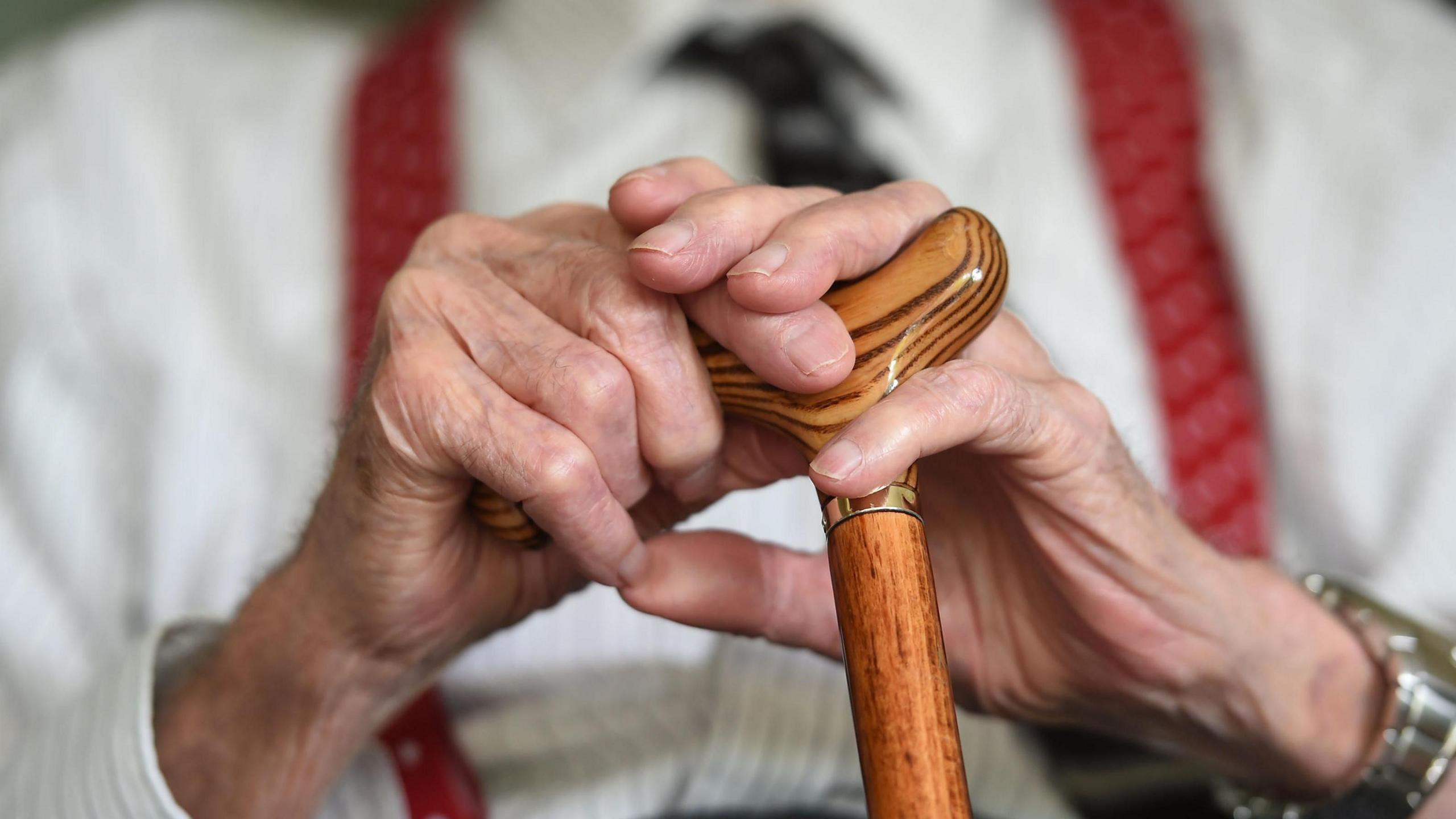Main English parties £4bn care funding gap warning

- Published
A leading think tank has warned of a £4bn “hole” in the social care plans of the three main parties in England.
Four years ago the government announced a plan that would put a cap on the amount someone has to pay for care costs throughout their lifetime.
The Conservatives, Labour and the Liberal Democrats have all said they are in favour of bringing in those reforms after the general election.
But the Institute for Fiscal Studies (IFS) has told the BBC that the money initially set aside to implement the reforms has already been spent on other priorities and would need to be found again.
The reforms were set to be introduced in 2023. That was delayed until October 2025, but councils were allowed to keep the money.
“So whilst at one stage it was funding set aside for social care reform,” said David Phillips, head of local government finance at the IFS, “that isn't there now”.
Instead, the money has been used by local authorities on “existing pressures” or “rolled into the overall tight spending envelopes”.
The government’s initial impact assessment estimated that the costs of rolling out the reforms would be around £4bn. The IFS believes that extra cash would need to be found by around 2028.
Mr Phillips said that without extra funding, the money would need to come from the existing budgets of central or local government, which he said could lead to “some very tricky choices for councils if it isn't funded – tax rises, cuts to other services or removing social care services from some existing recipients”.
He said the financial shortfall was evident in the plans set out by the Conservatives, Labour and the Liberal Democrats.

The Conservative manifesto commits to bringing in the reforms by next autumn.
Labour’s manifesto does not commit to that, but shadow health secretary Wes Streeting has since clarified that the spending cap would be introduced if his party wins the election.
The Liberal Democrats have pledged to give care workers a pay rise. This would be paid for by reversing tax cut to banks, but would be in addition to the spending cap plans.
Mr Phillips said there was “around a £4bn hole in each of these plans, that would need to be found either from within existing sets of government budgets, from council budgets, or from topping up spending and topping up taxes or borrowing more money”.
The Conservatives said they have a “clear plan to take the bold action needed to provide dignity and security to those in social care” and accused Labour leader Sir Keir Starmer of lacking the “courage or conviction to take difficult decisions”.
The Liberal Democrats pointed to the “nearly £4bn in extra funding to social care, paid for by reversing the tax cuts given to big banks” in their manifesto and said the party had “long called for cross-party talks to find a long-term solution to fund social care”.
A Labour spokesperson said the party was “committed to building a National Care Service over the next decade, so people can get good quality care wherever they live”.
They added: “As first steps towards that ambition, we will introduce national standards that every provider must meet, and a Fair Pay Agreement with better conditions for staff to tackle the shortage of care workers and see more people looked after in their homes.
“It's time for change. But change will only come if you vote for it with Labour.”